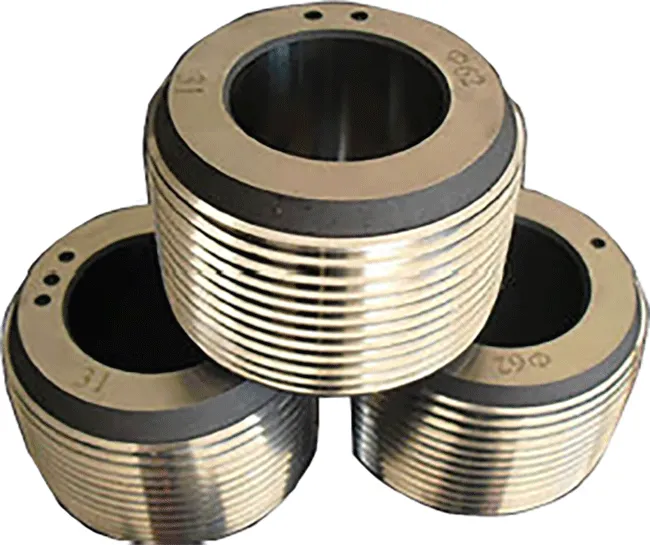Products Description
Thread rolling wheels are core functional components of thread rolling machines, used to roll precise threads on the surface of workpieces through rotational extrusion with the workpiece. Utilizing the principle of metal plastic deformation, they are widely applied in external thread processing of cylindrical workpieces such as bolts, lead screws, and steel bars. They serve as efficient, high-precision thread-forming tools in machinery manufacturing, construction, automotive, and other industries.
In terms of structure and specifications, thread rolling wheels are typically disc-shaped, with outer diameters ranging from tens of millimeters to hundreds of millimeters depending on processing requirements. Their working surfaces feature continuous tooth profiles that perfectly match the target thread parameters (pitch, thread angle, precision class). Based on the type of thread being processed, they can be classified into general thread rolling wheels, trapezoidal thread rolling wheels, pipe thread rolling wheels, etc. By tooth arrangement, they are divided into straight-grain wheels (for parallel threads) and diagonal-grain wheels (for tapered threads). For high-precision processing, thread rolling wheels often adopt a multi-piece combined design (e.g., double-wheel sets for two-axis rolling machines, triple-wheel sets for three-axis rolling machines), ensuring uniform force on both sides of the thread through multi-directional synchronous extrusion to improve forming accuracy.
Regarding material selection, thread rolling wheels must balance high strength, hardness, and sufficient toughness to withstand the enormous pressure and friction during rolling. Common materials include:
- Alloy tool steel (e.g., Cr12MoV): After quenching and tempering, its hardness reaches HRC60-62, suitable for processing general-strength workpieces;
- High-speed steel (e.g., W6Mo5Cr4V2): Superior in red hardness and wear resistance, ideal for continuous processing of medium-to-high strength metals (e.g., 45# steel);
- Cemented carbide (e.g., WC-Co series): With a hardness of HRA89-93, it offers extreme wear resistance, used for difficult-to-machine materials like high-strength alloy steel and stainless steel, though it has higher cost and brittleness.
Additionally, some thread rolling wheels use surface treatment technologies (e.g., carburizing, nitriding, PVD coating) to further enhance surface hardness and wear resistance, extending their service life.
In terms of manufacturing processes, thread rolling wheels undergo multiple steps including forging, annealing, rough machining, heat treatment, and precision grinding. Among these, tooth profile grinding is a critical step—special thread grinding machines are required to ensure tooth accuracy (typically IT5-IT7) and surface roughness (Ra≤0.8μm), as any deviation can directly cause dimensional errors or tooth defects in the workpiece thread.
In practical applications, the installation and debugging of thread rolling wheels significantly affect processing quality: the parallelism and radial runout between the wheel and the workpiece’s axis must be within allowable ranges (usually ≤0.01mm); rolling speed (typically 300-1000 rpm) and feed rate need adjustment based on workpiece material and thread specifications to avoid thread misalignment, workpiece bending, or premature wheel wear due to improper parameters. In daily maintenance, it is necessary to regularly clean metal debris from the wheel surface and inspect tooth wear. When tooth blunting, chipping, or surface cracks occur, timely replacement or regrinding is required to prevent impacts on thread surface quality and connection strength.
As manufacturing demands for efficiency and precision increase, thread rolling wheels are developing toward specialization and high efficiency. Examples include developing wear-resistant materials for specific workpieces, adopting modular designs for quick replacement, and optimizing tooth curves via digital modeling to reduce processing stress, thus adapting to diverse industrial processing needs.



